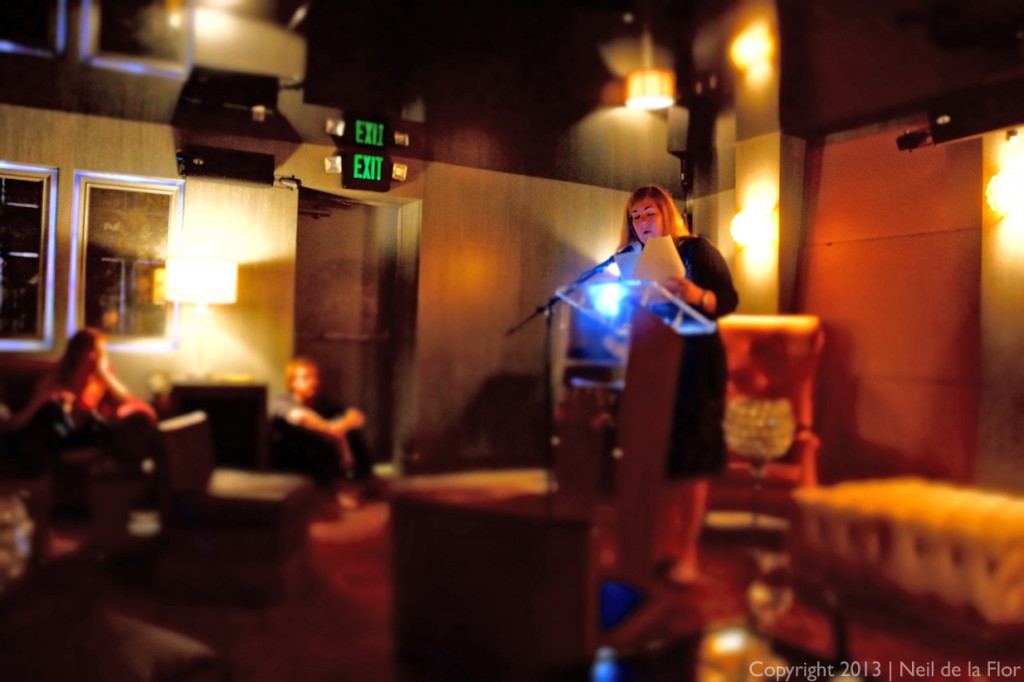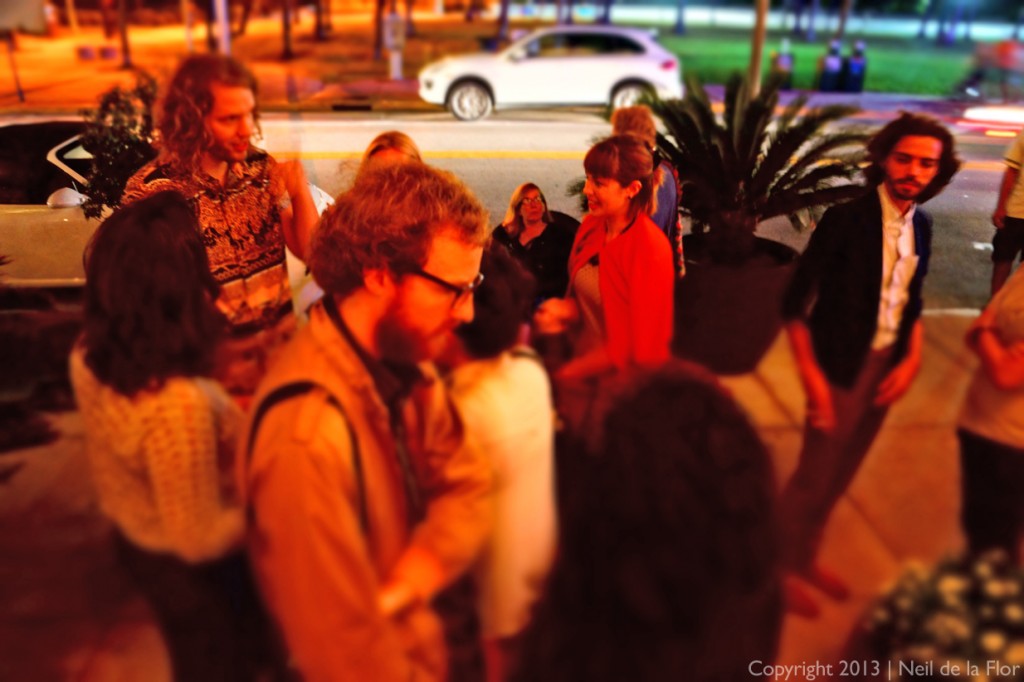
For Erin Belieu, a kerfuffle worth noting
No one remembers Juana; almost everything’s forgotten in time,
and if I tell her story, it’s only when guessing what she loved, what she dreamed about, the lost details of a life that barely survives history.
—Erin Belieu from “For Catherine: Juana, Infanta of Navarre”
This is what I learned at a poetry reading on a Sunday night on South Beach just a few minutes after I witnessed three women clad in bikini tops, crotch-cut shorts and high heels stumble south on Ocean Drive flirting with a man (“hey, boy,” they shouted) who ran a stop sign in an orange Ferrari in front of The Betsy Hotel.
Women writers are underrepresented across many of the nation’s most important and prestigious literary publications. That’s a fact documented by VIDA Count, an annual survey conducted by VIDA: Women in Literary Arts. Established in 2009, VIDA literally counts the number of women and the number of men published in national publications like The Nation, Harper’s, New Republic, among others.
The results show a distinct (and disturbing) bias towards men. For example, Harper’s published158 men and only 31 women in 2012, while the New Republic published 389 men versus 77 women. The ratio of men to women published in the Boston Review, though still biased toward men, showed greater parity between the sexes, which brings up another more disturbing disparity in the literary world: the virtual lockout of trans voices in almost all major literary publications.
University of Wynwood visiting poet Erin Belieu. Photo by Neil de la Flor
Poet Erin Belieu, who is also co-founder of VIDA, is partly responsible for making the literary world deservedly uncomfortable about gender bias in the media. “I started a kerfuffle,” Belieu said during her poetry reading at the B Bar at the Betsy Hotel as part of the University of Wynwood’s visiting writers series. And she did. Many literary publications have yet to move toward wider inclusion of female and trans writers.
Regardless, Belieu and VIDA continue to promote the fair and equitable representation and de-ghettoization (think degrading classifications such as “chick-lit”) of female and trans voices within the literary world and the larger culture—because “what history has forgotten,” as Christina Ruiz Grantham writes, “lived in Juana.”
Recent Content
-
Artsarticle ·
-
Artsarticle ·
-
Artsarticle ·

